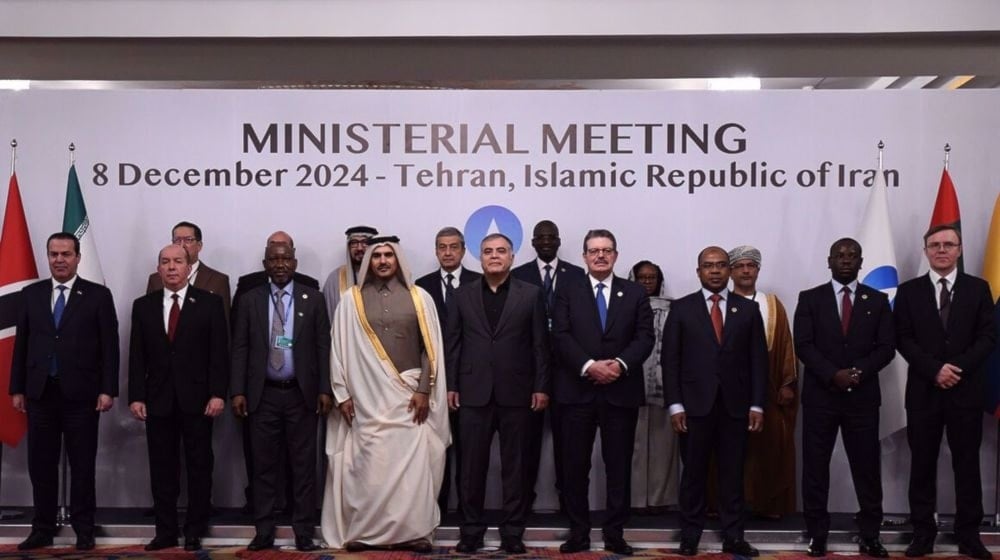Gas Exporting Countries voice alarm over Israeli aggression on Iran
The Gas Exporting Countries Forum (GECF) warns that such tensions disrupt vital supply chains, worsen energy poverty, and increase market instability.
-

Photo released by the Iranian Oil Ministry’s news service Shana shows officials attending the 26th ministerial meeting of the Gas Exporting Countries Forum (GECF) posing for a family photo on December 8, 2024, in Tehran. (Iranian Oil Ministry)
The Gas Exporting Countries Forum (GECF) has voiced concern over recent Israeli attacks on Iran, warning that such actions pose serious threats to global energy security.
In late October, the Israeli occupation military launched an aerial aggression against Iran, targeting its military facilities and bases.
In a final statement issued at the conclusion of its 26th ministerial meeting in Tehran on Sunday, the GECF condemned these deliberate attacks on Iran, emphasizing that such tensions disrupt vital supply chains, worsen energy poverty, and increase market instability.
While the meeting primarily centered on strengthening collaboration within the gas industry, it underscored the unanimous agreement among member states in rejecting hostile actions against Iran, said Iran's Deputy Oil Minister for International Affairs and Trade, Ali Mohammad Mousavi.
As a key member of the GECF, Iran holds the world’s second-largest natural gas reserves and ranks as the third-largest gas producer globally.
On his part, Iranian Oil Minister, Mohsen Paknejad, who presided over the ministerial meeting, underscored Iran’s critical role in global energy security, highlighting the country's continued development of gas export infrastructure despite stringent US sanctions.
Paknejad also pointed to the expansion of key resources, such as the South Pars gas field in the Gulf—the largest gas field in the world.
In its statement, the GECF reaffirmed its commitment to collaborating with global energy stakeholders and United Nations agencies to promote a balanced approach to international energy issues.
The forum underscored the centrality of natural gas to economic development, social progress, and environmental protection.
The statement pointed out that stronger multilateral cooperation can ensure a balanced and inclusive approach to global energy governance,” while addressing “challenges related to energy security, affordability, and environmental sustainability.”
Founded in the late 2010s based on a proposal from Iran, the GECF currently comprises 11 member states and eight observers.
Read more: Iran achieves milestone in space tech with Saman-1 and Fakhr-1 launch

 2 Min Read
2 Min Read








